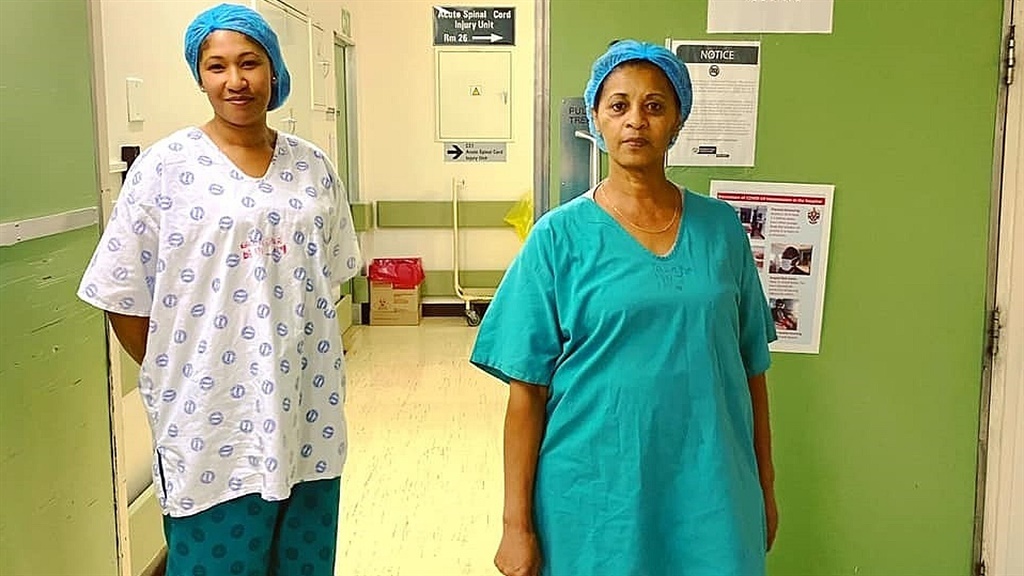


Nurses Verna Collins and Judith Parenzee. (Heroes of Groote Schuur via Facebook)
- The nurses’ reality – in their own words – was posted on the Heroes of Groote Schuur Facebook page and shared more than 3 000 times.
- Verna Collins and Judith Parenzee gave a frank account of what it’s like to work in a ward which used to have six beds, but now has 18.
- Health Minister Zweli Mkhize confirmed that the Western Cape had 55 162 of the 111 796 cases in the country.
“Emotionally drained” are the words two nurses, who work in Groote Schuur Hospital’s C27 ICU Covid Ward, have used to describe how they feel.
“I’m emotionally drained from yesterday and now I have to face today,” Verna Collins and Judith Parenzee said. “We are full full full.”
The pair’s reality – in their own words – was shared on the Heroes of Groote Schuur Facebook page on Wednesday. The posts are written by the hospital’s communications team from interviews with their staff.
News24 has requested an interview with the two nurses, who had a deserved day off on Thursday.
Their work day lasts 12 hours.
“Normally we’ll work a Monday, Tuesday, then have Wednesday and Thursday off, and then work the weekend. But now there’s no staff – there’s just no staff – so now they ask us to work one of our off days as well,” they said in their interview.
“We’re all parents, we all have families we need to take care of. And you still go home with whatever’s happening here. This place steals a lot away from you.”
READ | Covid-19 survivor documents her experience: ‘I want to give you guys a bit of hope and laughter’
Their frank account of working in a ward, which used to have six beds but now has 18, was shared more than 3 000 times by Thursday afternoon.
“We’ve only had one patient that’s actually left. The turnover is so bad. We’ve been admitting constantly, it just goes on and on and on,” the nurses said.
“The thing that I can’t handle the most is the families not being involved with the patients, especially if they are at their end. How do you communicate that?
“With the normal respiratory patients that we used to have, you have a rapport with them because you meet their family, especially if they are long-stay. So now that part is totally taken away because you don’t have any connection with the family. It’s only a phone and then you don’t know who you’re talking to on the other side.
Family members now video call, they said.
“If the patient’s doing well then it’s okay. Then at least they can see progress. If they’re dying, how do you video call the family? The family wants to see their relative. You can tell them the patient is ventilated, the patient is sedated but to physically get a picture and see all the tubes – they don’t even recognise the person that’s lying there. This is the worst part for me.”
ALSO READ | Stark differences between public and private sector testing
The workload means they are unable to connect with their patients, Collins and Parenzee said.
“It’s like a machine – you work from bed to bed to bed, then you go back to the beginning. So the norm that we knew as nurses and the contact we had with patients is no longer there because you won’t get through the day’s work.
“It’s crazy. None of the patients can communicate, because they’re all paralysed, they’re all sedated. We paralyse and sedate the patients with medication because we need to protect their lungs.”
The Western Cape has the highest number of positive Covid-19 cases in the country.
Health Minister Zweli Mkhize confirmed on Wednesday that the province accounted for 55 162 of the 111 796 cases nationally. This translates to 49.3%.
– Compiled by Tammy Petersen

